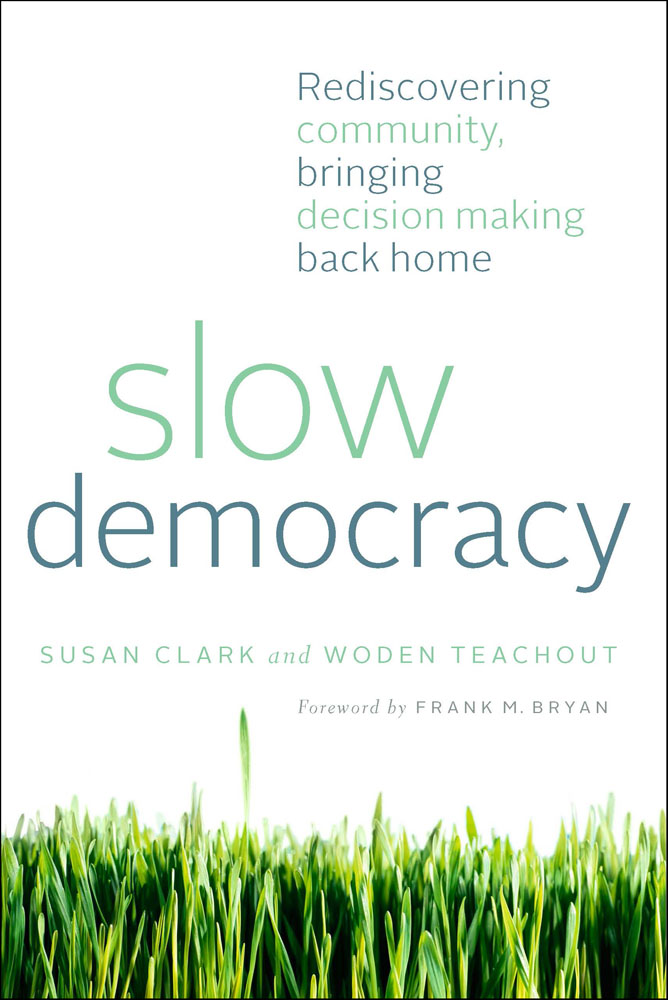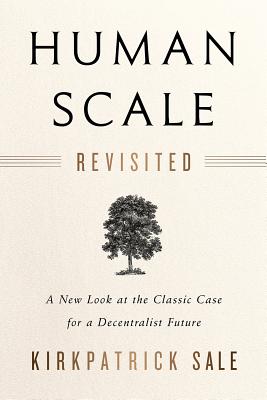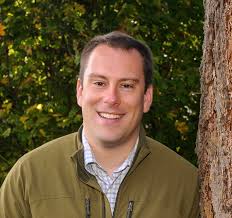Puyallup, WA. Seemingly everywhere we look in 2021, we are surrounded by reminders of our national politics. It permeates our media, fills our conversations, and creates family tension at the holidays. In many respects, this is the very opposite of how it ought to be.
In their 1985 book Habits of the Heart, Robert Bellah and colleagues expressed three different understandings that Americans have of politics. The first is “a matter of making operative the moral consensus of the community, reached through face-to-face discussion.” This is the classic idea of local civic activity, including community activities outside of government, that very much shape how we govern ourselves. The second is what they call “the politics of interest,” which is the variety of various interest groups contending within the political process. The third is what they call “the politics of the nation,” which is the way we identify collectively within our national political order.
The authors note the connection between local community politics and national purpose politics. The politics of the nation appeals “for legitimacy to the first type of politics—the vision of consensual, neighborly community.”
Without this rootedness in the politics of local communities, national politics becomes instead the politics of division, the politics of Left and Right, the politics of outrage. And so, we might hypothesize, the trouble with American politics these days is not so much that it is hyper-partisan as that it is hyper-nationalized. If we’re going to heal our country, we have to start locally.
In looking forward to the future of American self-government, Thomas Jefferson envisioned a web of local “small republics” where each citizen could serve as “an acting member of the Common government, transacting in person a great portion of its rights and duties,” he wrote in an 1824 letter to John Cartwright. Jefferson imagined a highly dispersed model of governance. He proposed in an 1816 letter to Joseph Cabell
to divide [government] among the many, distributing to every one exactly the functions he is competent to. let the National government be entrusted with the defence of the nation, and it’s foreign & federal relations; the State governments with the civil rights, laws, police & administration of what concerns the state generally; the Counties with the local concerns of the counties; and each Ward direct the interests within itself. it is by dividing and subdividing these republics from the great National one down thro’ all it’s subordinations, until it ends in the administration of every man’s farm and affairs by himself; by placing under every one what his own eye may superintend, that all will be done for the best…. where every man is a sharer in the direction of his ward-republic, or of some of the higher ones, and feels that he is a participator in the government of affairs not merely at an election, one day in the year, but every day; when there shall not be a man in the state who will not be a member of some one of it’s councils, great or small, he will let the heart be torn out of his body sooner than his power be wrested from him by a Caesar or a Bonaparte.
America never instituted a formalized system of ward-republics as such, but there can be little doubt about the importance of local self-governance in the development of the country.
Our love for democratic participation is closely related to our love for freedom. The more ways we have to participate in governing ourselves, the better. The more we can honestly say that we feel a sense of ownership of our respective corners of the country, the more we hold the commitment of membership within a community, the more likely we are to be good stewards of its future.
I am struck, in reading in the early history of my county in Washington State, how the Jeffersonian vision played out on the American frontier. Pioneer historian W.P. Bonney wrote of how men and women got things done in the early days of Pierce County, Washington, where “if there were roads to be built or schoolhouses to be erected and there was not enough money in the treasury to accomplish the purposes, those pioneers raised the funds in some manner. Or the men banded together and built the schoolhouse without imposing a tax; or merchant, farmer, saloon keeper, laborer and politician assembled with pick and shovel and gladly donated their services, and constructed the necessary piece of road, all as part of their every-day life, during the struggling period when there was so much to be done and such small means with which to do that.” Daniel Kemmis, the former Montana Speaker of the House and an insightful writer on democracy, wrote of “the subtle but persistent process by which frontier families learned the politics of cooperation.”
Consumer Democracy
But in these days of Twitter democracy, when platforms for political expression are so accessible, it sometimes seems, paradoxically, that citizens have little actual say in decision making about our country’s future. So many of our current grievances have to do with the perception that our power centers—whether in the public or private sectors—are too big and too distant and too impersonal. “Americans have a very limited sphere of influence on the issues that affect us,” write Susan Clark and Woden Teachout in their book Slow Democracy: Rediscovering Community, Bringing Decision Making Back Home. “We can blog, we can give money, we can put bumper stickers on our cars—but mostly we are reduced to passively taking in what the political system serves up, watching political ads on television, and casting that single ballot. While we may be voters, many of us feel less like citizens than consumers.”
A form of “easy” democracy that allows us to cast our vote once in a while, like Tweets from the president, and watch passively as commentators denigrate their political opponents on FOX or MSNBC is hardly what Jefferson had in mind when he described the dispersal of democratic responsibilities. “True democracy . . . . requires a mode of participation with one’s fellow citizens that is animated by a sense of responsibility for one’s society. . . .Watching television and pushing a button are privatizing experiences; they appeal to us as consumers, not as public citizens,” writes political theorist Jean Bethke Elshtain.
In this way, consumerism threatens community self-sufficiency. We move from citizenship to consumerism when we give up our reliance on neighborhood solutions. “Consumer society begins at the moment when what was once the province or function of the family and community migrates to the marketplace,” write community organizers and authors John McKnight and Peter Block of Chicago. “It begins with the decision to purchase what might have been homemade or neighborhood produced. This is how citizens begin to yield their power to the lure of consumption.”
This yielding of power doesn’t just take place in the consumer economy, but also in how we interact with government. McKnight and Block list seven community functions that we as neighbors must take ownership of—that cannot be outsourced to external bureaucracies, corporations, or other entities. The seven functions are safety and security, health, the well-being of children, the environment and the land, an enterprising economy, food, and care. “No business, agency, or government can fulfill these seven community functions, because of their inherent limits,” write McKnight and Block. “Only our community capacity has the power to fill the glass to the brim. So if we don’t know our neighbors, aren’t active in local community life, pay for others to raise our children and service our elders, and try to buy our way into a good life, we pay a larger price. We produce, unintentionally as it might be, a weak family, a careless community, and a nation that tries hopelessly to revive itself from the top down.”
Consumerism, and the related phenomenon of “clients” in relation to government bureaucracy, weakens democracy and limits the societal influence of smaller interest groups—“the misuses of power and the rampant commercialization and bureaucratization of almost everything have weakened our democratic institutions,” Ralph Nader wrote in his 2014 book Unstoppable: The Emerging Left-Right Alliance to Dismantle the Corporate State. “They have eroded our civic sense of community and marginalized our little-reported, modest countervailing powers, such as any activity by trade unions and family farms’ groups.” We deprive ourselves of a collective responsibility by taking the easy way out and handing our problems over to professionals.
The corporatization of the economy has come with blessings and curses. Our quality of life has risen in many ways, but the corporate economy has also driven consumer appetites and dispositions in ways that aren’t always helpful to our interests as self-governing citizens. When Winston Churchill saw the rise of mass corporations in the 20th century, he worried that they would displace independent businesses and independent individuals, resulting in a decline “in forethought, in initiative, in contrivance, in freedom, and in effective civic action.” Independent citizens, with the habits that accompany freedom, are most inclined to take “effective civic action.”
Face to Face
How can we restore “effective civic action” in our own time? It turns out that insightful thinkers and writers on the left, right, and center have been wrestling with this question for some time. Many of the answers come back to one thing: the importance of face-to-face connection.
“The antidote is smallness,” write Citizen University co-founder Eric Liu and venture capitalist/progressive political activist Nick Hanauer, both of Seattle, whose vision of interconnected citizenship “comes to life only on a face-to-face human scale.”
In his 1953 book Natural Right and History, political philosopher Leo Strauss wrote, “Only a society small enough to permit mutual trust is small enough to permit mutual responsibility.” And in his 1980 book Human Scale, social critic Kirkpatrick Sale wrote of “a scale at which one can feel a degree of control over the processes of life, at which individuals become neighbors and lovers instead of just acquaintances and ciphers, makers and creators instead of just users and consumers, participants and protagonists instead of just voters and taxpayers.”
According to social scientist Robin Dunbar, human beings can know about 150 people in a meaningful and intimate way. Beyond 150, or “Dunbar’s Number,” we can have many acquaintances, but our capacity for friendship dwindles.
What is needed, write Liu and Hanauer, are localized activities with smaller groups connected to larger networks, or “small-town ethos situated in a high-tech web.” And conservative philosopher Roger Scruton writes that “no large-scale project will succeed if it is not rooted in our small-scale practical reasoning.”
Lewis Mumford, following in the tradition of Aristotle, even suggested that there are natural limits to the sizes of communities. “Democracy, in any active sense, begins and ends in communities small enough for their members to meet face to face,” wrote Mumford.
To Strengthen the Nation, Start Locally
Returning to the Bellah formulation of the three different kinds of politics, we should consider how this localized form of democracy relates to the nationalized politics that overwhelm our social media feeds and attention. Recall that the politics of the nation appeals “for legitimacy to the first type of politics—the vision of consensual, neighborly community.”
In this way, a revival of localism would not necessarily weaken our national commitments; rather, it would tend to strengthen those commitments. It would deepen our commitments to democracy, because we would be more engaged in a meaningful way in something that we would understand to contribute to the well-being of the country. It would reinforce what Edmund Burke called the “public affections” that connect us to a sense of purpose larger than ourselves. It would elevate the prestige of local civic involvement, drawing talented people out of their preoccupations with their careers and retirements to take part in a shared national drive to make a difference. It would teach us what Tocqueville first called the “habits of the heart” that prepare us for a lifetime of engagement. And it would train people for service in spheres beyond the local. It would cause us to see the possibilities of service in a broader, deeper way, opening us to see the potential for human collaboration at every level—local, state, national, and even global. Finally, it would give us a common set of civic values so all of us, Republicans and Democrats and independents, can see again the possibility of common political ground. It would allow us to see one another as neighbors and fellow citizens and so to cultivate what Lincoln called “the better angels of our nature.”
Could it be that the best way for conservatives to limit government and the best way for progressives to limit big corporations is to strengthen local communities?
A revival of community life is more consistent with our nature as social beings, more realistically accomplished, and more aligned with current trends than the outright reformation of government or free markets in the name of strengthening civil society. “[T]he next step is not a knee-jerk reaction to ‘get big government off our back’ or to ‘decentralize our economy,’ neither of which in any absolute sense is going to happen,” write Bellah and colleagues. “What we must do, in line with Tocqueville’s argument, is to strengthen all those associations and movements through which citizens influence and moderate the power of their government, thus revitalizing a politics that can withstand the pull toward administrative despotism.” Could it be that the best way for conservatives to limit government and the best way for progressives to limit big corporations is to strengthen local communities?
What we need now is not a stronger national government, either on the left or the right, but more opportunities for Americans to take part in government. We need more outlets for participation, more opportunities for citizens to get involved and lead their own communities. Summarizing a point by Alexis de Tocqueville, Elshtain wrote, “Only many small-scale bodies would enable citizens to cultivate democratic virtues and to play an active role in the drama of democracy.”
Bellah and colleagues wrote that the “fullest conception of civic politics” they had observed “proposes to link local participation to a national dialogue.” Such a civic politics would hold “that the individual self finds its fulfillment in relationships with others in a society organized through public dialogue. The necessary dialogue can be sustained only by communities of memory, whether religious or civic.”
The Human Scale Politics Movement
In 1985, Bellah and his colleagues saw signs of civic revival within local communities, ones that could “be the forerunners of social movements that will once again open up spaces for reflection, participation, and the transformation of our institutions.”
Others on the left, right, and center have called for new movements. In 2012, University of Vermont political scientist Frank Bryan called for a “postmodern democracy project.” He explained, “We need a new generation of democrats who look at the times in which they were born and say: We can fashion a fresh, unique world of human-scale politics and reinstate the citizen as the center of a humane republic of democratic governance.” Bryan found in the rise of Occupy Wall Street and the Tea Party movement only the latest cross-spectrum response to “the dehumanizing effects of centralization, hierarchy, and authority.”
While Occupy and the Tea Party may have appeared to be on opposite ends of a vast spectrum, they had more in common than it seemed. “Tea Partiers are apt to identify the culprit as big government while Occupiers focus on big business but both are seeing the same thing: a mutually beneficial yet often publicly detrimental alliance between public power and private power,” wrote Jeff Taylor in his 2013 book Politics on a Human Scale: The American Tradition of Decentralism. Perhaps that’s why former Congressman Ron Paul, a Tea Party hero who ran for president in 2012, was complimentary of the Occupy movement. Or why political scientist John Rensenbrink, co-founder of the Green Party, said that many members of his party “support the Tea Party’s approach to smaller, less wasteful, and more effective government.”
But we need not look to political movements to see the widespread readiness for a human scale movement. The academic sector, the nonprofit sector, the faith sector, the business sector, and the high-tech sector all seem to contain potent ingredients for a resurgence of community. “Over the past twenty years, scholars and practitioners in the field of dialogue and deliberation have discovered a pent-up demand for authentic community interaction, in which citizens can have their voices heard locally and make a difference,” write Clark and Teachout. “Americans are eager for a return to community service; in one recent poll, nearly 90% of respondents said that they valued being involved in their communities. And with a new generation of technological tools at our command, we are more skilled in self-organizing than at any other point in our past. We have the ability to make choices that are more ecologically, economically, and socially sustainable, and the will to implement them.”
In his classic On Leadership, John W. Gardner explained the need for dispersed leadership—both outside and inside of large organizations. This is like the point made by Thomas Jefferson, and it accords with the Catholic principle of subsidiarity, which posits that decision-making is best done at the lowest possible level. Americans have long preferred dispersion, Gardner wrote. Dispersion promotes freedom by checking power, and “dispersion suits our style,” he observed. “We believe that social controls should not emanate solely from the top but also out of the community, neighborhood, family—and not least out of self-discipline.”
Therein lies an opportunity for Americans who want to make a difference in our generation. Now is as good a time as any to reject the obsession with the large-scale politics of concentration, consumerism, and division and instead to commit to a localized politics in which each of us can make our mark. Rather than staking our vision for the future on who wins a presidential election, who controls Congress, or who scores the most points on social media, let’s refocus our sights on a renewed politics of local democracy.







5 comments
Willis Renuart
I agree that mass social media and mass media, in general, has coarsened society, but I’m not sure how you get to a vibrant local press. It should be possible for the internet to facilitate meaningful communities. Wikipedia does a great job governing interested communities in ways that promote the public good. FPR brings together a far-flung community.
Willis Renuart
I may get banned from the FPR, but I don’t agree with the previous two posts. It is possible to have schools, police departments, firefighters, churches, healthcare, etc. all rooted in the community without banning Walmart. Undoubtedly, new vibrant businesses would arise from more vibrant communities because teams of people are more competitive than people working autonomously and without loyalty. But scale has huge benefits that cannot be denied. The trick is to know when it is needed. Things like utility grids and railroads require scale, and food distribution may be the same. Read the Great A&P by Levinson. Eating was a grim business for most of the year before the first supermarket.
Jeffrey Bilbro
Willis, I think you’re right, actually, that the trick is determining when larger scale is helpful and when it creates problems. I was struck reading the anthology of Free America by their discussions of the TVA and its possibilities for empowering local communities. The challenge, of course, lies in proper discernment. To Hans’s point, it sure seems that mass social media has not improved local or national politics.
Rob G
~~While Occupy and the Tea Party may have appeared to be on opposite ends of a vast spectrum, they had more in common than it seemed. “Tea Partiers are apt to identify the culprit as big government while Occupiers focus on big business but both are seeing the same thing: a mutually beneficial yet often publicly detrimental alliance between public power and private power,” wrote Jeff Taylor~~
As I’m sure you know, there is also a cultural counterpart to this phenomenon, namely the symbiotic relationship between the economic “technocrat” right and the cultural left. There is such a thing as “woke capitalism,” and neither word in that term should be deemed beyond scrutiny.
As the blogger “Maximos” once succinctly put it, the right seeks societal traditionalism while espousing “economic liberty,” and the left seeks economic solidarity while espousing cultural liberation. But in both cases the latter commitment subverts the former.
Russell+Arben+Fox
Hans,
This is an excellent, thoughtful survey of the many strands which tie consumer capitalism, centralization, and the atrophying of community democracy together–very well said!
The only emphasis I would add to excellent synthesis is regarding the role of technology. Not just communication technologies, which you do touch on briefly, but our entwined, multilayered technological systems of resource extraction, which greatly incentivizes continual growth by way of specialization and distancing. Why grow your own wheat or apples, or build your own computers–or for that matter, make your own democratic decisions–when everything you need can be shipped more cheaply from the Palouse or Yakima or Everett anyway, all of which the smart kids in Seattle and Redmond have made as easy as clicking a button? (Yes, I am an old Washington State guy–Spokane native here!) When we confront the reality of technological systems that have been built around consumer capitalism, and corporate forms which have in turn constructed their business plans–and thus the jobs which so many livelihoods depend upon–entirely under the assumption of the continued growth of said systems, the idea of local democratic dissent becomes harder to visualize, I think.
Hence the importance, at least from what I can tell, of tying the calls for local civic engagement to the slow building of alternative economic arrangements–ones more democratized and socialized, more distributive and agrarian, more locally and communally sufficient, and, yes, therefore also probably more limited and environmentally sustainable and “poorer” is certain “quality of life” senses. That’s a hard argument to make, to be sure; the entrepreneurial obsessions on the political right bristle at any kind of collective limits on individual choice, and the obsession with equality on the political left (an obsession I mostly agree with, so this is my own problem here) suspects that any talk of collective limits is bound to be exclusionary in some indefensible way. But if those of us who care about localism, despite all our own disagreements, can at least agree upon that–upon the need to prioritize citizenship over consuming goods–then headway may be possible, or so I hope.
Comments are closed.